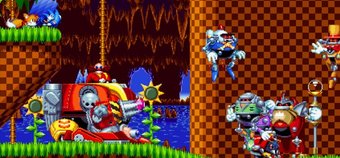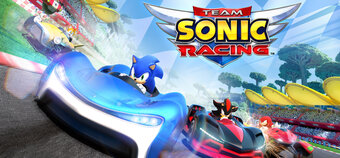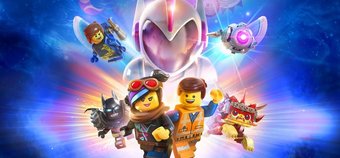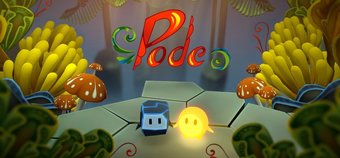With its new console now on the shelves, the Wii U marks the beginning of a new approach to downloadable games from Nintendo. With fewer restrictions, a higher revenue share, and an easier approval process all planned to entice smaller companies to develop downloadable games for the Wii U, Nintendo are wading in full force with the intention of building up a strong line-up of new, innovative titles. After all, ask any Xbox 360 owner where most of the best games can be found on their console, and they'll likely tell you the Xbox Live Arcade. Where games with lower budgets, but big ideas can go to thrive, the Wii U eShop's launched with a fairly modest selection of games - one of which is Trine 2.
Hitting the Wii U in a trendy Directors Cut form (the 360, PS3 and PC all got Trine 2 a while ago), the Wii U version is the most complete form of the game, with an expansion pack, some Wii U exclusive features, and a bonus level thrown in for good measure - although at a rather hefty £13.99 (currently on sale for £10.99 until the end of the year), you'll be hoping for a pretty comprehensive pack.
A three player co-op adventure, Trine 2 mixes traditional platforming with puzzles in a spectacular fantasy world (with lots of pretty water). By plugging in a Nunchuck and Wii Remote combo, up to three people can join in the fun, taking on the role of one of a trio of adventurers - an old wizard, who can conjure boxes; a nimble thief, who's armed with a bow, and can fire a grappling hook to haul herself up to otherwise inaccessible places; and an armour clad knight, who carries either a sword and shield, or a whopping great mallet, which is great for smashing things up.
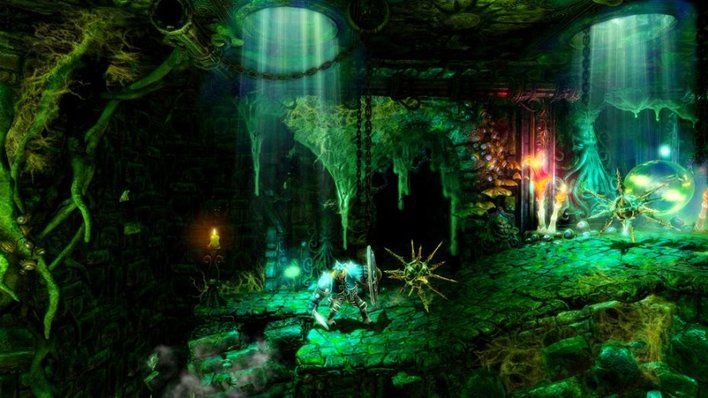
Enemies are one of the most frustrating parts of the game, especially as the wizard doesn't actually have an attack.
But while at first glance you may be expecting just another hack and slash platformer, Trine 2's actually more of a puzzle game than anything else, with each level being a procession of various physics based mind benders waiting to be decrypted. And when we say physics based, it's probably best to clarify we're not talking about figuring out relativity or trying to work out how to propel a goblin at his escape velocity - instead, we're talking about the kind of puzzles you end up solving as you would in real life. One of the earlier (and recurring) puzzles sees you coming across something of a cliff. With a door high up on the right hand side of the screen (and well out of your reach), you'll have to take in your surroundings. There's water falling from a chute, a strange sparkling in the middle of the screen, and a plant with a giant leaf growing on the right hand side. As luck would have it, that stream of water is actually magic water, with the ability to make a plant (which is handily sparkling to attract your attention) grow to gargantuan proportions. But how you get the water there is entirely up to you. In this situation, there are at least two things you can do - the first is to get your wizard to summon a box, which you can then cunningly place under the flow of water, causing it to gush towards the leaf instead; or, you can make use of a giant leaf that just happens to be sitting at the side of the screen - grabbing it with your magic, you can give it a tug, and use it as a funnel to move the water to the right place.
And it's this air of experimentation that you'll have to use to figure your way past Trine's many puzzles. One of the other common examples asks you to keep a gate open for enough time in order to get everyone past. After pulling the switch, you'll have to keep an eye on everything that moves, as you look for something you can block, a switch you can keep active, or a mechanism with a weakness. As with the leaf puzzle before, though, usually you'll have to simply spawn a box, and jam it in one of the mechanisms - with the box stopping a wheel rotating, or a cog from turning, you'll be able to speed through the door without much hassle.
With each of the characters having their own special abilities, it goes without saying that Trine 2 is a game best enjoyed with friends - not only because it'll save you having to switch between characters all the time, but also because it makes the game a heck of a lot easier. In fact, if you're planning on playing along on your own, we'd advise you steer clear, if only because you'll be resigned to using the GamePad to control your character - which isn't as easy as you'd expect. A rather awkward mix of using buttons and the Touch Screen, controlling your characters, and switching between them isn't as easy as you'd hope - even if most of it is achieved at the touch of a button. But by far the biggest problem with playing in single player is that, well, you won't be able to botch your way through the puzzles, like you usually seem to have to.
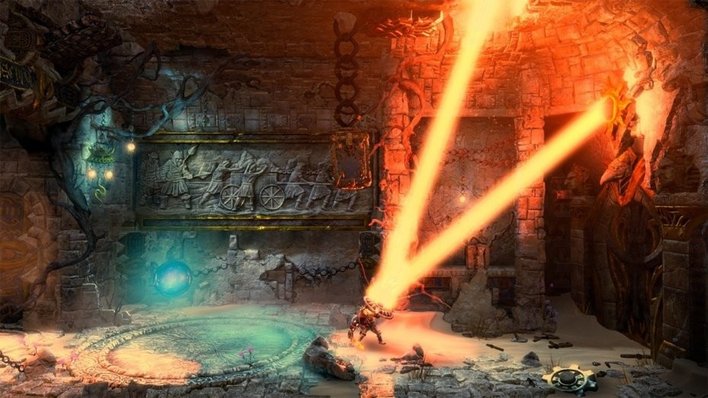
The character's special abilities often come in useful.
You see, while solving puzzles through trial and error is all well and good, on too many occasions, the puzzles in Trine 2 don't seem to actually have a solution - or at least, not one that can be achieved without feeling like you've botched your way past a puzzle that could have had a much cleverer solution. While most of the puzzles in the game can be solved by spawning as many boxes as you can, whether you're building a staircase, blocking off a switch, or using it to help the other characters get around the level, it's not really a problem - in fact, stacking up boxes is quite fun. It's when there seems to be no other way to complete the puzzle bar lifting your friends to the exit, before going to find a nice pit of spikes to jump into in order to rejoin your friends that things start to seem a bit naff.
Too often, the puzzles in Trine 2 don't seem to have a genuine solution that doesn't involve balancing crates in a precarious manner before rushing through the door to the end of the level before the whole stack collapses. It doesn't help that some of the puzzles seem to actually require you to use a move that you may not have learnt yet. As you kill enemies, and solve puzzles, you'll earn experience points, which can be used to upgrade your characters. In practice, it's not really worth bothering upgrading anyone but the wizard (and possibly the thief's bow, as the ice arrows are a lot more powerful than the standard ones), as it's usually the wizard who has to solve the puzzles. Level the wizard up, and you'll be able to conjure more boxes (useful), and a plank, which is actually essential to completing some of the later puzzles. If you've chosen to level your characters up, you may find yourself having to reset everyone's skill points, in order to unlock the power's you'll need to finish that puzzle. Which is a little bit daft. If you need a particular skill in order to complete a puzzle, why not make sure you'll have unlocked it before you reach that puzzle?
And it's more than a little bit frustrating, because Trine 2 had the potential to be so good. After all, it's certainly a great idea - a physics based puzzle game that your friends can join in sounds like the recipe for one of the best games to hit the Wii U eShop - and while it does have its moments, Trine 2 has one too many problems to properly recommend it. If you go in mindful of its flaws, you'll find a roughly equal mix of entertaining and awkward puzzles, topped off with some co-op fun. If you're going to be playing on your own, though, we can't recommend it.
Format Reviewed: Nintendo Wii U










